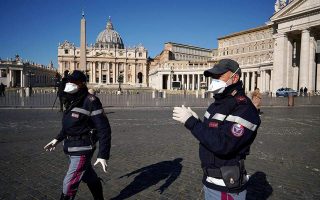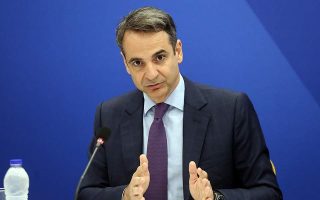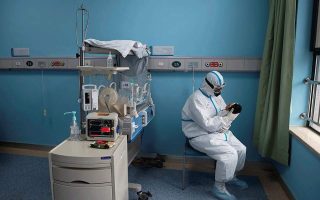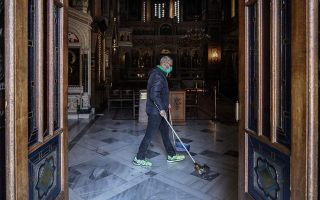Nothing self-evident about decision on churches
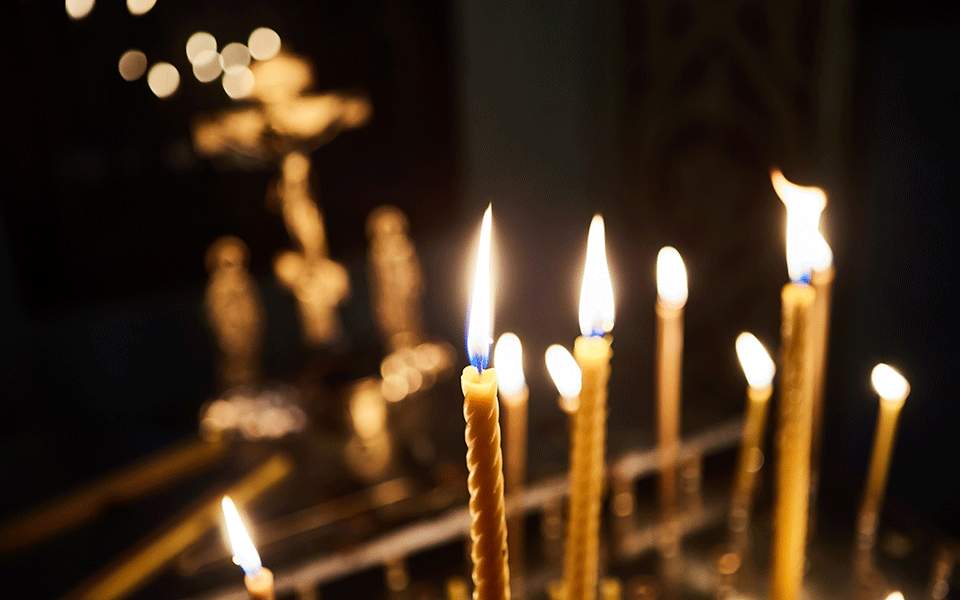
The opposition says that Prime Minister Kyriakos Mitsotakis took too long, that he should have taken what was a self-evident decision sooner. Yet, how “self-evident” was it just a couple of weeks ago for a Greek government to order the suspension of church operations?
The prime minister started trying to convey his concerns to the leadership of the Church of Greece as soon as the epidemic appeared in the country and made numerous efforts to exert his influence as discreetly as possible. He even made his position public during an address to the nation last week, and that was only after his appeals had been turned down by the Archbishopric of Athens, which said that it would not convince the country’s “conservative bishops” of the need to suspend services.
In the meantime, before Mitsotakis spoke publicly about the issue, the measure had already been adopted by the Patriarchate and the Greek Orthodox Archdiocese of America, with the Albanian Archdiocese immediately following suit.
The ban was “self-evident,” according to critics. What was self-evident, though, was the need to avoid a confrontation with the Church of Greece in the middle of the biggest public health crisis in a century. The media, it is true, did not help matters along. They tended to frame the issue in religious terms, giving representatives of the hierarchy a platform on which they presented themselves as epidemiology experts.
A handful of prominent government officials also proved unhelpful as they came out in defense of the Church’s right to make its own decisions, just as the Prime Minister’s Office was trying to negotiate with the clergy’s leadership. Their stance seemed to overlook the fact that the Church of Greece is a state entity.
Nevertheless, growing public awareness and the Maximos Mansion’s discreet pressure on the Church made Monday’s decision to suspend church services appear inevitable. The issue had matured because the government’s overall handling of it made it appear self-evident. This was amply illustrated by the fact that the government’s foremost expert adviser on the epidemic, Professor Sotiris Tsiodras, spoke to the Holy Synod in an unprecedented show of cooperation between faith and science.
Moreover, the Holy Synod’s ensuing statement about allowing only “simple services” to take place was vague and open to accidental or deliberate misinterpretation, leaving the prime minister no choice but to take the final decisive step the hierarchy was hesitant to take.
Every step of Mitsotakis’ handling of the issue showed that he did not want a confrontation with the Church. He did everything to avoid it, but when arguments would no longer suffice, he didn’t shy away from it either. And his lack of fear – fear of the political cost of a clash with the highly influential clergy – is not at all self-evident.
The prime minister’s predecessor cannot boast of any occasion when he defied this fear. Mitsotakis, however, will at least be able to say that when push came to shove, he didn’t consider the political cost.
